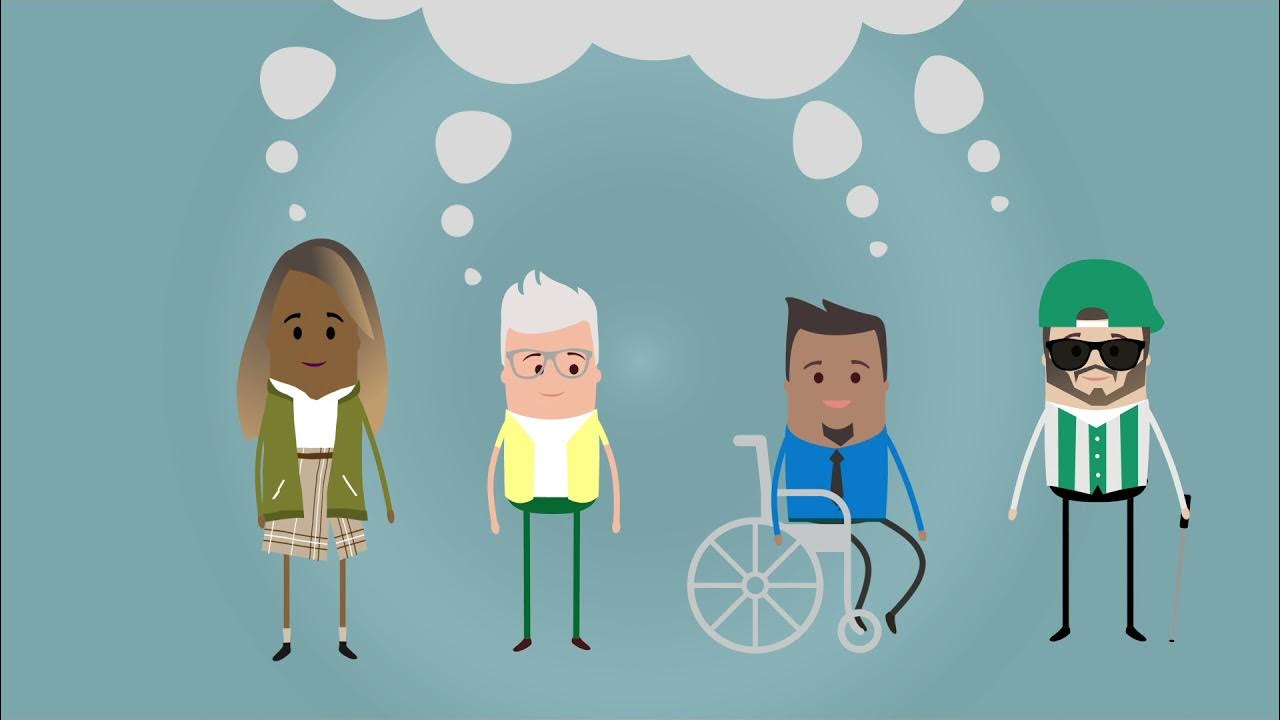The differences between Equality, Equity, and Justice
Summary
TLDRThe video script explores the concepts of equality, equity, and justice in the context of food access. It highlights that while equality provides the same resources to all, it doesn't guarantee equal health outcomes due to varying accessibilities. Equity addresses this by meeting distinct community needs for ideal outcomes. Justice goes further by reforming policies for sustainable, equitable food access. The script calls for collective action from policymakers, businesses, individuals, and city planners to ensure food justice, which is integral to public health, and promotes the University of Minnesota's School of Public Health's commitment to health equity and justice.
Takeaways
- 🍎 Equality in food access means providing the same resources to everyone, but it doesn't guarantee equal health outcomes.
- 🏘️ Proximity to grocery stores affects food access, with some neighborhoods having better access to healthy food options.
- 🚑 Lack of access to healthy food can lead to higher risks of chronic illnesses, highlighting the importance of equitable distribution.
- 🔄 Equity addresses the distinct needs of individuals and communities by providing the necessary resources for ideal outcomes.
- 🤝 Community partnerships with city leaders and policy makers are crucial for building more equitable food systems.
- 🛒 Efforts to improve food access focus on making healthier, affordable food available closer to home, especially in disadvantaged neighborhoods.
- 🌟 Justice goes beyond equity by ensuring long-term, sustainable, and equitable food access through systemic changes.
- 🛡️ Policy makers play a key role in promoting and stocking high-quality fresh produce across all neighborhoods and eliminating price barriers.
- 🏪 Businesses have a responsibility to offer affordable, culturally appropriate healthy food options to their communities.
- 🗳️ Individuals can contribute to food justice by advocating for local grocers and farmers markets and organizing community support.
- 🏛️ City planners and decision makers should make equitable decisions regarding the location of grocery stores and community gardens.
- 🏥 Food justice is intrinsically linked to public health, and institutions like the University of Minnesota School of Public Health are committed to advancing health equity and justice.
Q & A
What is the difference between equality and equity in the context of food access?
-Equality provides the same resources or opportunities to all individuals or groups, whereas equity recognizes that each person and community has distinct needs and provides the exact resources and opportunities required to reach their own ideal outcome.
Why does the misconception exist that individuals have control over their own health if they have the same resources and opportunities?
-The misconception arises because it overlooks the fact that factors such as proximity to grocery stores and historical disadvantages can affect health outcomes, even when resources and opportunities are seemingly equal.
How does the proximity to grocery stores affect the health of residents in different neighborhoods?
-Proximity to grocery stores can greatly affect health as it determines the ease of access to healthy food. Those living far from well-stocked stores may have difficulty accessing nutritious food regularly, leading to higher risks of chronic illnesses.
What role do decisions, policies, and laws play in determining access to healthy food?
-Decisions, policies, and laws can restrict where people live and where stores are built, which in turn affects the availability of healthy food options in certain neighborhoods.
How does the lack of access to healthy food increase the risk of chronic illnesses?
-Limited access to healthy food options can lead to poor dietary choices and inadequate nutrition, which are risk factors for developing chronic illnesses.
What are some ways in which equity can be achieved in food systems according to the script?
-Equity can be achieved by partnering with city leaders, policy makers, and researchers to build more equitable food systems, improving access to healthier, affordable food, especially in historically disenfranchised neighborhoods.
What is the role of justice in ensuring long-term, sustainable, and equitable food access?
-Justice involves fixing policies, laws, and systems to ensure that equitable food access is maintained for future generations, going beyond immediate improvements to address systemic issues.
What actions can policy makers take to promote equitable food access?
-Policy makers can require effective promotion and stocking of high-quality fresh produce across all neighborhoods and eliminate price barriers by including healthy foods in food assistance programs.
How can businesses contribute to making healthy food options more accessible and affordable?
-Businesses can ensure that healthy food options are priced affordably and cater to the cultural needs of their communities, making them more appealing and accessible.
What is the significance of city planners and decision makers in the context of food justice?
-City planners and decision makers play a crucial role in making equitable decisions about the location of grocery stores and community gardens, which directly impacts the accessibility of healthy food.
How does the University of Minnesota School of Public Health contribute to advancing health equity and justice?
-The University of Minnesota School of Public Health is dedicated to advancing health equity and justice, likely through research, education, and community engagement initiatives.
Outlines

This section is available to paid users only. Please upgrade to access this part.
Upgrade NowMindmap

This section is available to paid users only. Please upgrade to access this part.
Upgrade NowKeywords

This section is available to paid users only. Please upgrade to access this part.
Upgrade NowHighlights

This section is available to paid users only. Please upgrade to access this part.
Upgrade NowTranscripts

This section is available to paid users only. Please upgrade to access this part.
Upgrade NowBrowse More Related Video
5.0 / 5 (0 votes)





